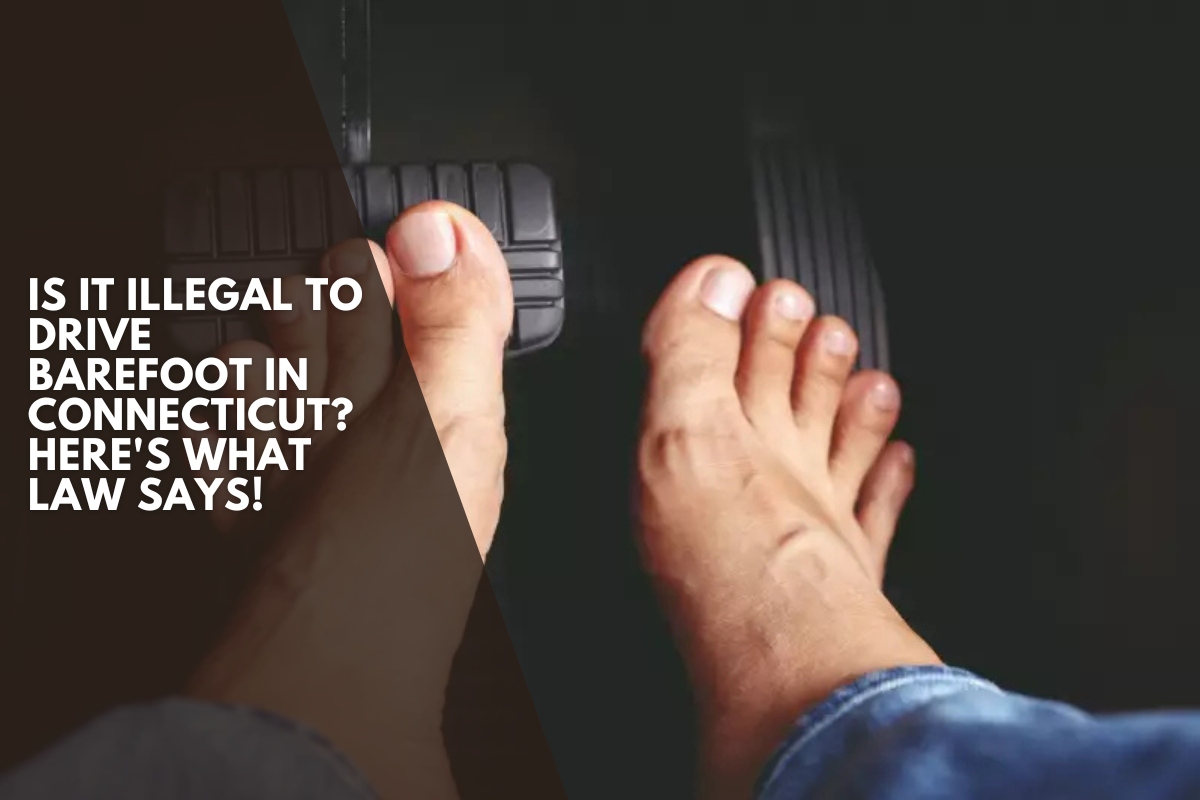Driving barefoot may seem like a comfortable and harmless choice, but many wonder whether it is legal, especially in states like Connecticut. This article explores the legal status of barefoot driving in Connecticut, dispels common misconceptions, and highlights important safety considerations.
Legal Status of Driving Barefoot in Connecticut
In Connecticut, driving barefoot is not illegal. Unlike some states that might have specific regulations on footwear while driving, Connecticut currently has no laws prohibiting drivers from operating a vehicle without shoes. This means that a driver caught driving barefoot is not committing a traffic violation solely based on lack of footwear.
However, absence of a legal ban does not imply endorsement of barefoot driving. Drivers remain responsible for controlling the vehicle safely, and law enforcement can intervene if they believe unsafe driving practices are involved.
Common Misconceptions About Barefoot Driving
There are several myths surrounding barefoot driving that may cause drivers unnecessary concern:
It’s illegal everywhere: Not true. Barefoot driving is permitted nationwide except in rare cases like Alabama.
You will be ticketed: While police may caution you if they perceive unsafe conditions, driving barefoot alone generally does not warrant a ticket.
Insurance claims will be denied: Insurance policies do not automatically reject claims if the driver was barefoot; however, individual case details, including driver responsibility, still apply.
Barefoot drivers are automatically at fault for accidents: Fault depends on the circumstances of the accident, not footwear.
Understanding these facts helps drivers separate myth from reality and avoid undue worries.
Safety Considerations When Driving Barefoot
Though legal, driving barefoot can introduce safety risks:
Reduced pedal control: Shoes provide traction and protection essential for reliable pedal operation—bare feet may slip, especially in emergency maneuvers.
Risk of injury: In an accident or emergency exit, bare feet lack protection from broken glass, debris, or hot pavement.
Weather impact: Bare feet are vulnerable in icy or extremely hot conditions, compromising quick vehicle control when needed.
Wearing appropriate shoes supports safer driving habits and better vehicle handling.
Police Interaction and Driving Barefoot
Connecticut police may stop a driver for barefoot driving if they believe it compromises safety, but enforcement usually involves education or caution rather than fines. Officers prioritize overall road safety, warning drivers about risks and encouraging the use of proper footwear.
Advice from Driving Instructors
Driving schools in Connecticut recommend wearing suitable shoes as an essential safety practice. Proper footwear helps drivers maintain pedal control and confidence, essential for developing good driving habits, especially for new drivers.
Driving barefoot in Connecticut is legal, but safety concerns and practical risks suggest wearing proper shoes is the best choice. While barefoot driving won’t get you ticketed, drivers are encouraged to prioritize control, protection, and emergency readiness by wearing appropriate footwear wherever they drive.
Sources
(https://www.800perkins.com/faqs/can-i-drive-barefoot-in-connecticut/)
(https://www.yahoo.com/news/articles/legal-drive-barefoot-connecticut-know-090736539.html)
(https://www.reddit.com/r/Connecticut/comments/6lo246/driving_barefoot_is_completely_legal_in_ct/)
(https://mokaraminjurylawyers.com/blogs/is-it-illegal-to-drive-barefoot-in-the-usa/)
(https://www.myimprov.com/barefoot-driving-legal-but-not-recommended/)











